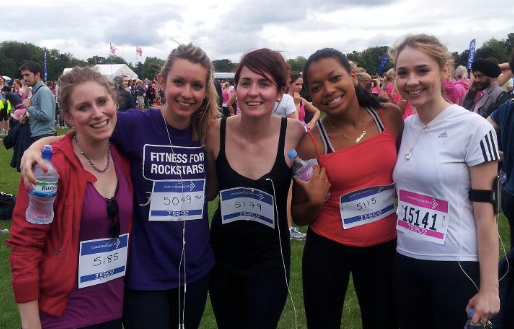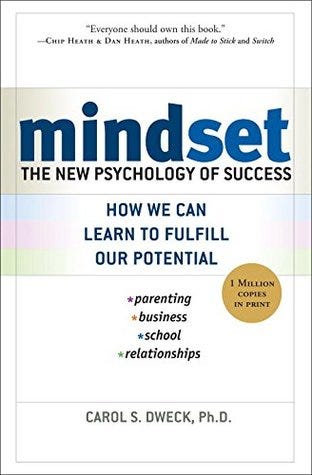Six Things I Wish I Knew When I Graduated

I was recently invited to Oxford University’s Internet Institute to speak to masters, MBA and MPA students about my book Dream Big. Hustle Hard., sharing advice on how to succeed in tech’s competitive landscape in spite of the well-publicised obstacles around inclusion. Unlike the students in the room — a diverse group of men and women spanning many ages, ethnicities, and disciplines — when I graduated from university the invisible barriers that hinder career progression were not known to me.
Nor were they being discussed in public forums like newspapers or social media, let alone a lecture theatre. As I entered the working world full time in 2009, gender pay gap reporting was not a legal requirement in the UK, the Black Lives Matter movement hadn’t risen in the US and the term intersectional feminism did not feature in pop culture vocabulary.
Yet while it’s certainly easier to tackle an obstacle once you can name it, building a fulfilling career remains a challenge to us all. Particularly for millennials who studies show are the hardest employees to retain since records began. In my view, that’s because the way universities teach us about careers is all wrong. They fail to equip us — particularly women and other underrepresented people — with the tools necessary to make sensible holistic decisions and build sustainable careers. That’s why I wrote my book and started Hustle Crew and nontechtech but that’s a story for another article.
Here I share the six things about work I wish I knew when I graduated. I hope that they will help you get closer to where you want to be work-wise.
1. Frameworks are better than answers
Throughout school, we are taught to find the right answer to the question. Sometimes there’s more than one answer, sometimes there’s no single right answer but either way we are trained to be solution focused on how we approach questions. But what happens when you apply this approach to the very complex question “What job should I do?” Suddenly things get complicated.
Our lives are long and our careers are varied. Even more so for millennials and Gen-Z who live multi-hyphen lives flexing their skills across multiple roles. This means its important to not obsess over the correct answer but instead focus on the correct framework to guide us to our solution. Its easy to make emotional or reactive decisions when it comes to jobs but its better if we can rely on frameworks to guide our thinking so we can make the best next step according to our motivations and priorities. It’s better to optimize for our priorities than obsess over one specific path.
2. Do what you’re good at not what you love
We often hear successful entrepreneurs and champions across fields from sports to science advising people to do what they love and pursue their passions in order to be successful. While that may work for the privileged few who end up being a global sensation in the field they love, it’s not advice I would give to ordinary folks like you and me. There is an opportunity cost at the beginning of your career when you pursue passion for creating value in a company and building your corporate career capital. This means that at the beginning of your career it’s far more valuable to focus on what you’re good at.
At the beginning of my career, I was already very good at sales. I’d worked as a street fundraiser the summer before starting university and always smashed my targets. During university, I had a part-time job at the Reiss concession in Selfridges and earned hundreds of pounds in commission every week. When I had my first interview in tech at a startup called Groupon I was asked by my soon-to-be boss what I was good at, I said sales. I had concrete examples to share that showed I was good at it and that’s what got me hired. Do I love sales? Sure, but not as much as I love writing and public speaking. But at the start of my career, there were few entry-level roles on offer that maximized those skills. Capitalism rarely lets us optimize for our own fulfillment, especially at the start of our careers.

Raising money to fight breast cancer with Groupon girls in July 2012
3. Decisions are not permanent and do not define you
Doing 12-hour revision sessions at the library in the weeks leading up to my final year exams, I would often start daydreaming about my future. What am I going to do with my life after I graduate? The question freaked me out. I had no clue and felt overwhelmed by all the choices and the unknowns and how I might make the wrong choice and set my life off on a horrible path of failure. Now I realize I was just asking the wrong question. Instead of asking yourself, “What should I do with my life?”, ask yourself, “What should I do with the next couple of years of my life?”
There are too many variables beyond our control to be able to plan with certainty too far into the future. It’s far more sensible — and better for our mental health — if we make career choices for the not too distant future, accepting that we are likely to change. Are the priorities you have now the same ones you had a year ago? Two years ago? Five years ago? If the best indicator of the future is the past, it stands to reason that in a few years’ time your priorities will change again. So accept the inevitability of change and make decisions accordingly. Be content with a plan that makes sense for now and be willing to adapt when the time comes. Acknowledge the plan could backfire but not through any fault of your own. Be kind to yourself.

LSE library AKA where I spent most of 2008–2009.
4. Adopt a growth mindset, develop your self-awareness
Reading Dr. Carol S Dweck’s book ‘Mindset’ literally changed my life. In it, she describes the results of studying hundreds of successful people from across a range of fields like business, education, and sports. She identifies one uniting trait that separates these exceptional people from everyone else. These superstars see the output as directly linked to efforts. In other words, they believe that to be better at something they must simply work harder. And they make effort to understand their strengths and weaknesses.
That’s what it means to have a growth mindset. Their counterparts with a fixed mindset believe abilities are pre-ordained and see failures as the point at which you quit. To adopt a growth mindset is to turn failures into lessons and to acknowledge your skills and development areas, as opposed to being in denial of them and blaming setbacks on everything but yourself.

The book that changed my life AKA the cheapest therapy session ever
5. Leverage the power of communities and mentors
The common saying is that “your network is your net worth”. I only started to realize this when I became a full-time entrepreneur bootstrapping my first venture, Hustle Crew. I relied on my network to secure my first customers when I launched as a B2C careers coaching company and again later when I pivoted to a B2B training company. It’s my network that helped me land speaking gigs to gain more exposure and my network that helped me turn my book from an idea into something that’s sold hundreds of copies.
I used to find the idea of networking cringe and repulsive. I realize now that’s because I hadn’t taken the opportunity to be self-reflective and think of what my true interests and motivations are. I was networking in all the wrong places. Now that I know I’m passionate about tech entrepreneurship, inclusion in the workplace, community building and content creation — it’s easy for me to find events that align with that and enjoy networking while I’m there. I always meet like-minded people in these communities many of whom I’m fortunate to now call friends.

The first careers workshop I ran with Natalie Nzeyimana in July 2016, just before launching Hustle Crew
6. Be your biggest fan
This is particularly important for women because living in a patriarchy we are often made to feel like second-class citizens. It starts when we’re young. Good boys are described as brave while good girls are described as pretty. We have so much to give the world than just our looks. It’s super important to be your biggest fan and acknowledge the value you bring to the table. Appreciating yourself is the source of so many great things that help you excel in your career. It gives you confidence, meaning you can negotiate for what you’re worth. Self-love also helps you avoid toxic relationships and gives you clarity around your motivations and desires. It also makes you a pleasure to be around.
Positive people get more done than negative people. As a result, truly ambitious people tend to be positive and are drawn to other positive ambitious people. Together they build great things — this could and should be you. If you find it difficult to grow your self-esteem ensure you are actively taking steps to change that. Join communities, find the right one that allows you to be yourself and be celebrated. Invest in a careers coach, or join a debating or public speaking club. Start seeing mentors regularly to help you level up. Whatever it is, ensure you are really doing something about it, not just mulling it over. Mentors are available to help for free from communities like Hustle Crew and NonTechTech — the list goes on.



